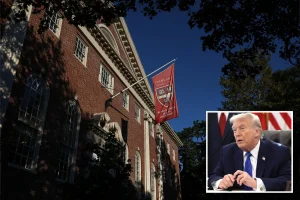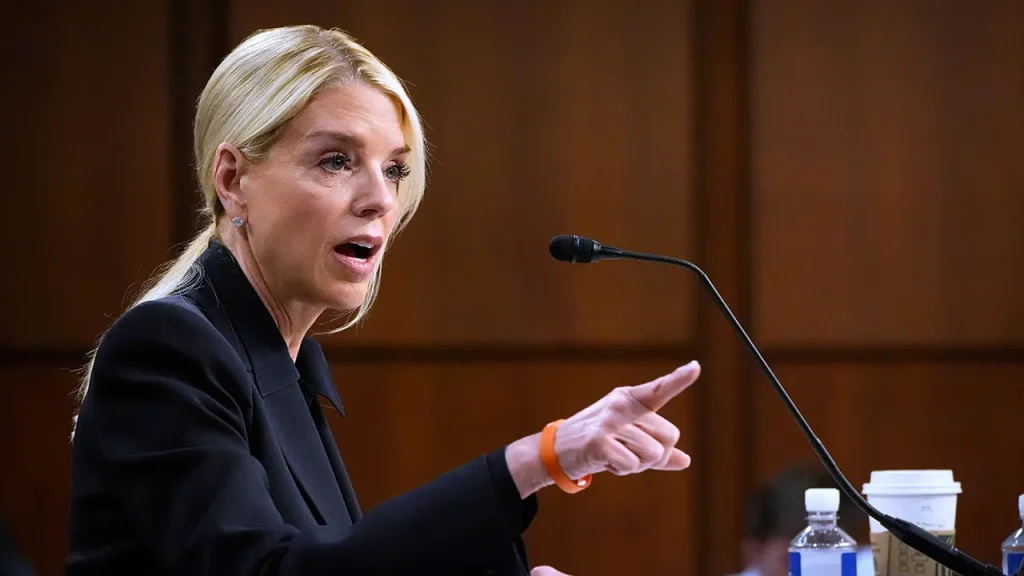Bondi Calls for Legal Action Against Comey and James Amid Controversial Dismissals
In a heated address to reporters in Memphis, U.S. Attorney General Pam Bondi announced her intention to pursue “all available legal action” against former FBI Director James Comey and New York Attorney General Letitia James following the dismissal of criminal indictments against both figures. Speaking at an event highlighting Memphis’s “Safe Task Force,” Bondi expressed her determination to hold both Comey and James “accountable for their unlawful conduct,” signaling an immediate appeal of U.S. District Judge Cameron Currie’s decision. The judge had ruled that prosecutor Lindsey Halligan, who brought the cases, had not been lawfully appointed as interim U.S. Attorney for the Eastern District of Virginia, rendering the indictments defective. Bondi’s forceful remarks underscored the high-stakes legal and political battle that has been brewing since the indictments were first announced, with the Attorney General specifically characterizing Comey’s alleged actions as “a betrayal of public trust.”
The case against James Comey stems from his 2018 congressional testimony regarding the FBI’s Crossfire Hurricane investigation, which examined possible connections between Donald Trump’s 2016 campaign and Russia. Indicted in September 2025, Comey faces serious charges of making false statements to Congress and obstructing a congressional inquiry. Comey has vehemently denied any wrongdoing, maintaining that his statements were “truthful to the best of my recollection” and dismissing the prosecution as “a political hit job, not a pursuit of justice.” The Comey case represents a significant chapter in the ongoing political divisions that have characterized American politics since the 2016 election, with supporters viewing the prosecution as necessary accountability and critics seeing it as politically motivated retribution.
Letitia James’s legal troubles emerged separately when she was indicted in October 2025 on mortgage and bank-fraud counts. Prosecutors allege that James misrepresented a Virginia home purchase as a secondary residence in 2020 to secure more favorable loan terms, supposedly benefiting by approximately $19,000 over the life of the loan. This case has attracted particular attention given James’s prominent role as New York’s Attorney General and her involvement in numerous high-profile investigations, including cases related to former President Trump’s business practices. The timing and nature of these charges have raised questions about potential political motivations behind the prosecution, especially given the contentious relationship between James and the current administration.
The dismissal of both cases hinged on procedural grounds rather than the merits of the allegations themselves. Defense teams for Comey and James successfully argued that prosecutor Lindsey Halligan’s appointment was invalid, creating a fatal flaw in the indictments. Halligan, who previously served as a legal aide to Donald Trump, was the sole federal prosecutor to sign Comey’s indictment while acting as United States Attorney for the Eastern District of Virginia. This technical victory for the defense highlights the complex interplay between procedural requirements and substantive justice in high-profile political cases, raising questions about whether the underlying allegations will ever be fully tested in court or simply become another chapter in America’s polarized political narrative.
During her Memphis appearance, Bondi strongly defended Halligan’s credentials and role, revealing that steps had been taken to address the procedural issues identified by the court. “We have made Lindsay Halligan a special US attorney so she is in court, she can fight in court just like she was, and we believe we will be successful on appeal,” Bondi asserted. The Attorney General went further in her defense of Halligan, describing her as “an excellent US attorney” and suggesting that opposition to her appointment was inappropriate. This staunch defense indicates that the Department of Justice under Bondi’s leadership remains committed to pursuing these cases despite the initial procedural setback, setting the stage for continued legal battles that will likely attract significant public attention.
The ongoing saga involving Comey and James reflects broader tensions in America’s legal and political systems, where questions of accountability, political motivation, and procedural fairness frequently intersect. As Bondi pursues appeals and potentially new indictments, these cases will continue to test fundamental principles about the separation of politics from prosecution and the proper functioning of the justice system. The eventual outcomes may have significant implications not just for the individuals involved, but for public trust in legal institutions and the boundaries of prosecutorial discretion in politically charged environments. With strong opinions on both sides and the involvement of high-profile figures from across the political spectrum, these cases seem destined to remain at the center of public discourse regardless of their ultimate legal resolution.















